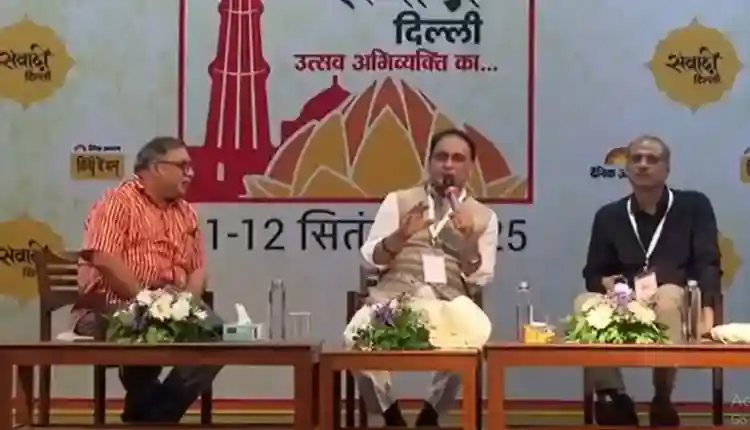New Delhi: A seemingly innocuous remark by Bharatiya Janata Party (BJP) Rajya Sabha MP Rakesh Sinha at a Miranda House College event has snowballed into a major controversy, reigniting debates over the India-Pakistan cricket match scheduled for Sunday in the Asia Cup 2025.
The comment, made in response to a question about the propriety of playing cricket with Pakistan amidst ongoing tensions, has sparked a firestorm on social media, forcing Sinha to issue a clarification.
During the event, a student questioned Sinha on the government’s stance, referencing the phrase “blood and water cannot flow together” used during Operation Sindoor, India’s retaliatory strikes following the April 2025 Pahalgam terror attack that killed 26 civilians. Sinha’s initial response — that the government’s stance applied to “blood and water, not cricket”—drew sharp criticism. He argued that sports, arts, and culture transcend national boundaries and should not be politicised, asserting, “Cricket is just a game, and it shouldn’t be linked to politics.”
However, many perceived the remark as dismissive, leading to an online backlash. Critics accused Sinha of trivialising the sacrifices of soldiers and the sentiments of martyrs’ families. Social media platforms buzzed with outrage, with some alleging that he was downplaying sensitive national security issues for political gain. Others labelled his statement as contradictory to the government’s firm anti-terrorism stance.
Facing mounting criticism, Sinha issued a clarification on September on Saturday, via a post on X, claiming his words were misconstrued. “My remarks on the India-Pakistan cricket match were misunderstood due to an edited video and a minor slip in my statement,” he said. He clarified that while sports and arts are generally above politics, Pakistan’s alleged support for terrorism makes the match an exception. “Personally, I believe this cricket match should not take place,” he added, distancing himself from his earlier stance and calling the selective circulation of his comments an example of “post-truth” manipulation.
The controversy has intensified the already charged atmosphere surrounding the India-Pakistan Asia Cup clash on Sunday in Dubai.
With Opposition parties and former cricketers questioning the Board of Control for Cricket in India’s decision to proceed, Sinha’s remarks have added fuel to the debate. As voices grow louder — some demanding a boycott, others defending the spirit of sports — the incident underscores the delicate interplay between cricket and politics in the subcontinent, leaving Sinha at the centre of a polarising storm.



Comments are closed.